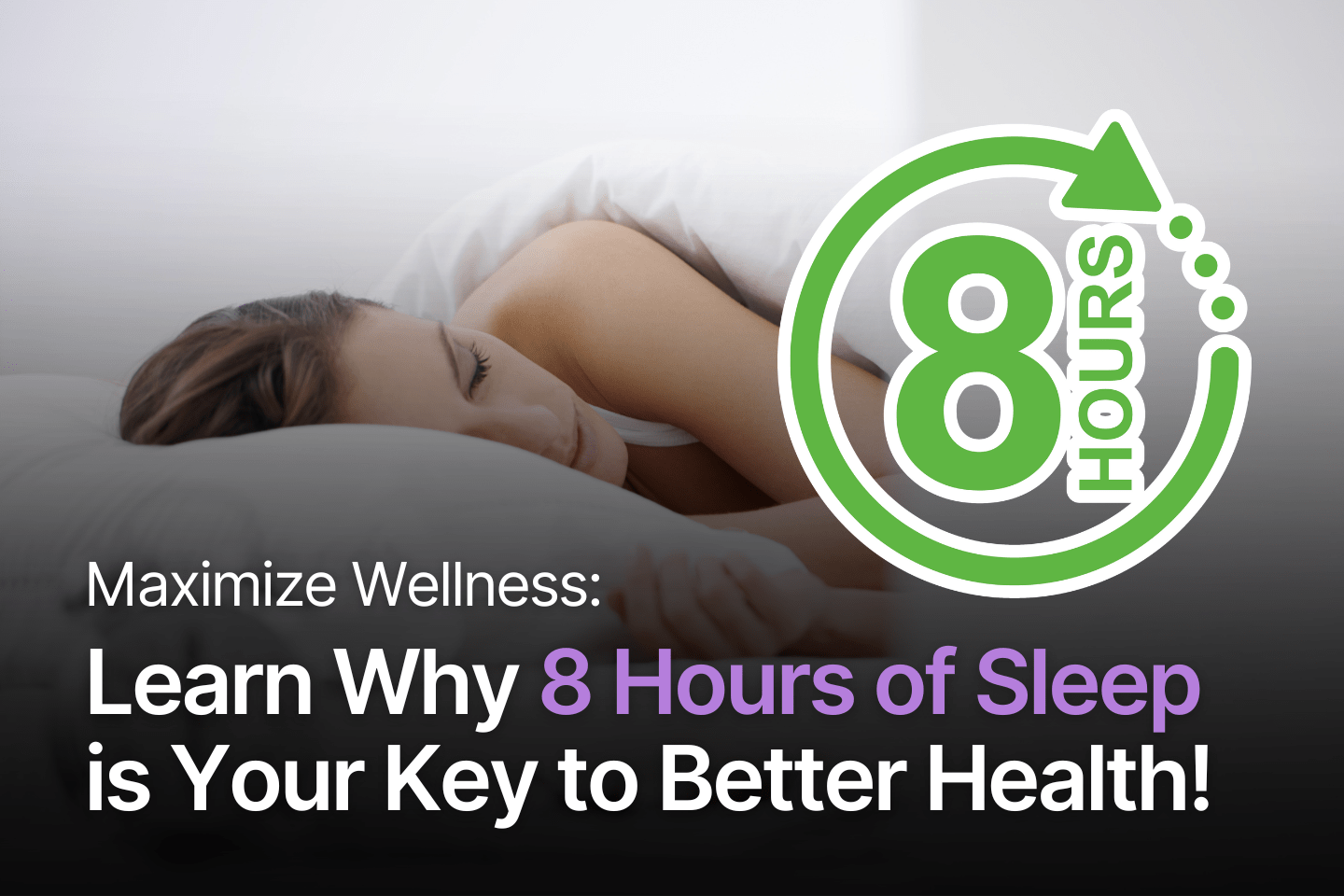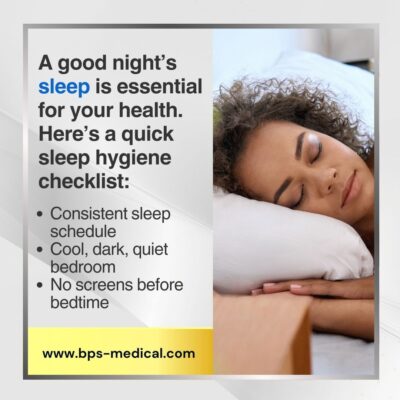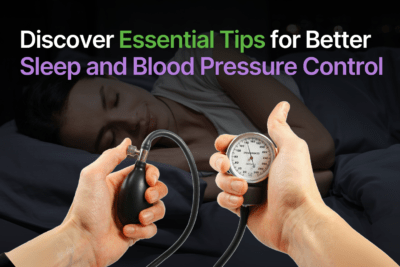
Home » Why 8 Hours of Sleep? Why It Matters for Your Health
How 8 Hours of Sleep Can Transform Your Health and Productivity
When it comes to sleep, the golden rule that often comes to mind is to get “8 hours of sleep” per night. This recommendation is rooted in a wealth of scientific research indicating that a consistent 8-hour sleep schedule is optimal for most adults. In this blog, we will delve into the importance of 8 hours of sleep, its impact on various aspects of health, and practical tips to help you achieve this nightly goal.
Common Myths About Sleep
Myth 1: You Can Catch Up on Sleep Over the Weekend
While it’s possible to recover from short-term sleep debt, consistently skimping on sleep during the week and trying to catch up on the weekends is not a healthy strategy. This pattern can disrupt your circadian rhythm and lead to chronic sleep deprivation.
Myth 2: Older Adults Need Less Sleep
While sleep patterns can change with age, older adults still need about 7-9 hours of sleep. The quality of sleep may decline, making it crucial to adopt healthy sleep habits.
Myth 3: You Can Train Yourself to Need Less Sleep
Some people believe they can adapt to getting less sleep without adverse effects. However, research shows that chronic sleep deprivation impairs performance and health, even if you feel accustomed to it.
Is 8 hours of sleep too much?
Eight hours of sleep is generally considered optimal for most adults, but individual sleep needs can vary. The National Sleep Foundation recommends 7-9 hours of sleep per night for adults aged 18-64, and 7-8 hours for those 65 and older (CDC).
How many hours of sleep is healthy?
The amount of sleep considered healthy varies by age, with specific recommendations for different life stages. According to multiple sources, including the National Sleep Foundation and the Centers for Disease Control and Prevention (CDC), here are the general guidelines:
Recommended Sleep Duration by Age:
- Newborns (0-3 months): 14-17 hours per day
- Infants (4-11 months): 12-15 hours per day
- Toddlers (1-2 years): 11-14 hours per day
- Preschoolers (3-5 years): 10-13 hours per day
- School-age children (6-13 years): 9-11 hours per day
- Teenagers (14-17 years): 8-10 hours per day
- Young adults (18-25 years): 7-9 hours per day
- Adults (26-64 years): 7-9 hours per day
- Older adults (65+ years): 7-8 hours per day
To learn more >> How much sleep do I really need?
Why 8 Hours of Sleep?
The Science Behind the Recommendation
The notion of 8 hours of sleep is not arbitrary; it is backed by decades of sleep research. The National Sleep Foundation and other health organizations recommend 7-9 hours of sleep for adults, with 8 hours often cited as the ideal midpoint. This recommendation is based on extensive studies that show how different amounts of sleep affect physical health, mental well-being, and cognitive function.
Sleep Stages and 8 Hours of Sleep
During sleep, our bodies cycle through different stages, including light sleep, deep sleep, and REM (rapid eye movement) sleep. Each stage plays a crucial role in maintaining overall health:
- Light Sleep: Facilitates mental and physical restoration.
- Deep Sleep: Essential for muscle repair, immune function, and energy restoration.
- REM Sleep: Critical for cognitive functions like memory, learning, and mood regulation.
An 8-hour sleep period typically allows for 4-6 complete sleep cycles, ensuring that each stage is adequately covered.
Historical Context
Historically, the 8-hour sleep standard has roots in industrial-era reforms aimed at improving worker productivity and health. It was popularized in the 19th century by reformers like Robert Owen, who advocated for “eight hours labor, eight hours recreation, eight hours rest.”
Struggling to get 8 hours of sleep?
Struggling to get 8 or 9 hours of Sleep is a common issue for many people. Here are some key facts and statistics about sleep difficulties and their causes:
Common Reasons You’re Not Getting Enough Sleep
Prevalence of Sleep Issues:
- About 50 to 70 million American adults have a sleep disorder, with insomnia affecting 10% to 30% of adults. Women are more likely to suffer from insomnia than men, primarily due to hormonal changes and higher rates of anxiety and mood disorders.
- Around 32.3% of adults in the US reported insufficient Sleep in 2020. This rate is slightly higher for men (33.3%) compared to women (32.1%) (Start Sleeping) (CFAH).
Common Causes of Poor Sleep:
- Stress and anxiety are significant contributors, with many people reporting that worry about the next day or replaying the day’s events keeps them awake at night.
- Physical discomfort, such as back pain, joint pain, and heartburn, can also prevent restful Sleep.
- Environmental factors like temperature and the presence of electronic devices in the bedroom disrupt Sleep. Blue light from screens can inhibit melatonin production, making it harder to fall asleep (National Sleep Foundation) (CDC).
Impact of Lifestyle and Health:
- Weight and physical activity levels significantly affect Sleep. Obesity can lead to sleep disorders such as sleep apnea, and poor Sleep can contribute to weight gain. Regular exercise is linked to better sleep quality and duration.
- Dietary habits, particularly the consumption of caffeine and alcohol, can disrupt sleep patterns. Limiting these substances can improve sleep quality (Start Sleeping) (CDC).
Age and Sleep:
- Sleep needs vary by age, with adults typically requiring 7-9 hours per night. However, more than one-third of adults report not meeting this recommendation, often feeling sleepy during the day.
- Older adults (65+) might need slightly less Sleep but still require good sleep quality to maintain health. Insomnia is particularly prevalent among older adults (National Sleep Foundation).
Sleep Environment and Habits:
- Creating a comfortable sleep environment is crucial. A comfortable mattress and a dark, quiet room can significantly improve sleep quality.
- Establishing a regular bedtime routine and avoiding screens before bed can also help enhance sleep quality (National Sleep Foundation).
Understanding these factors and making adjustments to your lifestyle and sleep environment can help improve your chances of getting a good night’s rest.
Health Benefits of 8 Hours of Sleep
Physical Health
- Heart Health: Consistent 8 hours of sleep is linked to a lower risk of heart disease and hypertension. Lack of sleep increases stress hormones like cortisol, which can elevate blood pressure.
- Weight Management: Sleep influences hormones that regulate hunger. Insufficient sleep disrupts the balance of ghrelin and leptin, leading to increased appetite and potential weight gain.
- Immune Function: During sleep, the immune system releases cytokines, proteins that help fight infections and inflammation. An adequate amount of sleep strengthens the body’s defense mechanisms.
Mental Health
- Mood Regulation: Sleep deprivation is closely linked to mood disorders such as depression and anxiety. Adequate sleep helps stabilize mood and emotional resilience.
- Cognitive Function: A full night’s sleep enhances memory consolidation, problem-solving skills, and creativity. Chronic sleep deficiency can impair cognitive processes, affecting productivity and decision-making.
- Stress Reduction: Sufficient sleep helps lower stress levels and improve overall emotional well-being.
Longevity
Studies have shown that individuals who consistently get 8 hours of sleep tend to live longer, healthier lives. Chronic sleep deprivation is associated with an increased risk of mortality from various health conditions, including cardiovascular diseases and diabetes.
Why am I still feel tired after 8 hours of sleep?
Feeling tired after getting what seems like a sufficient amount of sleep can be frustrating. There are several potential reasons why this might happen:
Poor Sleep Quality: Even if you’re in bed for 8 hours, factors like frequent awakenings, light sleep, and interruptions can affect the quality of your sleep.
Sleep Disorders: Conditions such as sleep apnea, restless legs syndrome, or insomnia can prevent restorative sleep.
Stress and Anxiety: Mental health issues can affect sleep quality and lead to feelings of fatigue.
Sleep Cycle Disruption: The timing of your sleep matters. Irregular sleep schedules can disrupt your circadian rhythm, leading to tiredness.
Diet and Lifestyle: Poor diet, lack of exercise, and excessive caffeine or alcohol can impact sleep quality.
Medical Conditions: Chronic illnesses, depression, and other health issues can cause fatigue despite adequate sleep duration.
Sleep Environment: Factors like an uncomfortable mattress, too much light, or noise can impact how well you sleep.
Medications: Some medications can interfere with sleep patterns and lead to tiredness.
To address persistent fatigue, consider tracking your sleep habits, improving your sleep environment, and consulting with a healthcare professional to rule out any underlying conditions.
Practical Tips for Achieving 8 Hours of Sleep
Establish a Consistent Sleep Schedule
Going to bed and waking up at the same time every day helps regulate your body’s internal clock, making it easier to fall asleep and wake up naturally.
Create a Relaxing Bedtime Routine
Engage in calming activities before bed, such as reading, taking a warm bath, or practicing relaxation techniques like deep breathing or meditation. Avoid stimulating activities and electronic devices at least an hour before bedtime.
Optimize Your Sleep Environment
Ensure your bedroom is conducive to sleep. This includes a comfortable mattress and pillows, a cool room temperature, and minimal light and noise. Consider blackout curtains and white noise machines if necessary.
Limit Caffeine and Alcohol
Both caffeine and alcohol can interfere with your sleep cycle. Try to avoid caffeine in the late afternoon and evening, and limit alcohol consumption before bed.
Exercise Regularly
Regular physical activity can help you fall asleep faster and enjoy deeper sleep. However, avoid vigorous exercise close to bedtime, as it may have a stimulating effect.
Manage Stress
Chronic stress can disrupt sleep patterns. Incorporate stress-management techniques into your daily routine, such as yoga, mindfulness, or journaling.
Watch Your Diet
Eating a balanced diet and avoiding heavy meals close to bedtime can improve sleep quality. Certain foods, like those rich in tryptophan (e.g., turkey, nuts), can promote sleepiness.
Monitor Your Sleep
Use a sleep diary or sleep tracking app to monitor your sleep patterns and identify areas for improvement. This can provide valuable insights into your sleep habits and help you make necessary adjustments.
Achieving 8 hours of sleep per night is more than just a recommendation; it's a cornerstone of good health. The benefits of adequate sleep extend across physical, mental, and emotional well-being, making it a critical component of a healthy lifestyle. By understanding the science behind sleep and implementing practical strategies, you can enhance your sleep quality and, consequently, your overall quality of life. Prioritize your sleep, and your body and mind will thank you for it.
References:
- National Sleep Foundation. (n.d.). How Much Sleep Do We Really Need? Retrieved from sleepfoundation.org
- Harvard Medical School. (2018). Importance of Sleep: Six reasons not to scrimp on sleep. Retrieved from health.harvard.edu
- Centers for Disease Control and Prevention (CDC). (2017). Sleep and Sleep Disorders. Retrieved from cdc.gov
- Walker, M. (2017). Why We Sleep: Unlocking the Power of Sleep and Dreams. Scribner.
- American Heart Association. (2020). Lack of Sleep: Can It Make You Sick? Retrieved from heart.org









